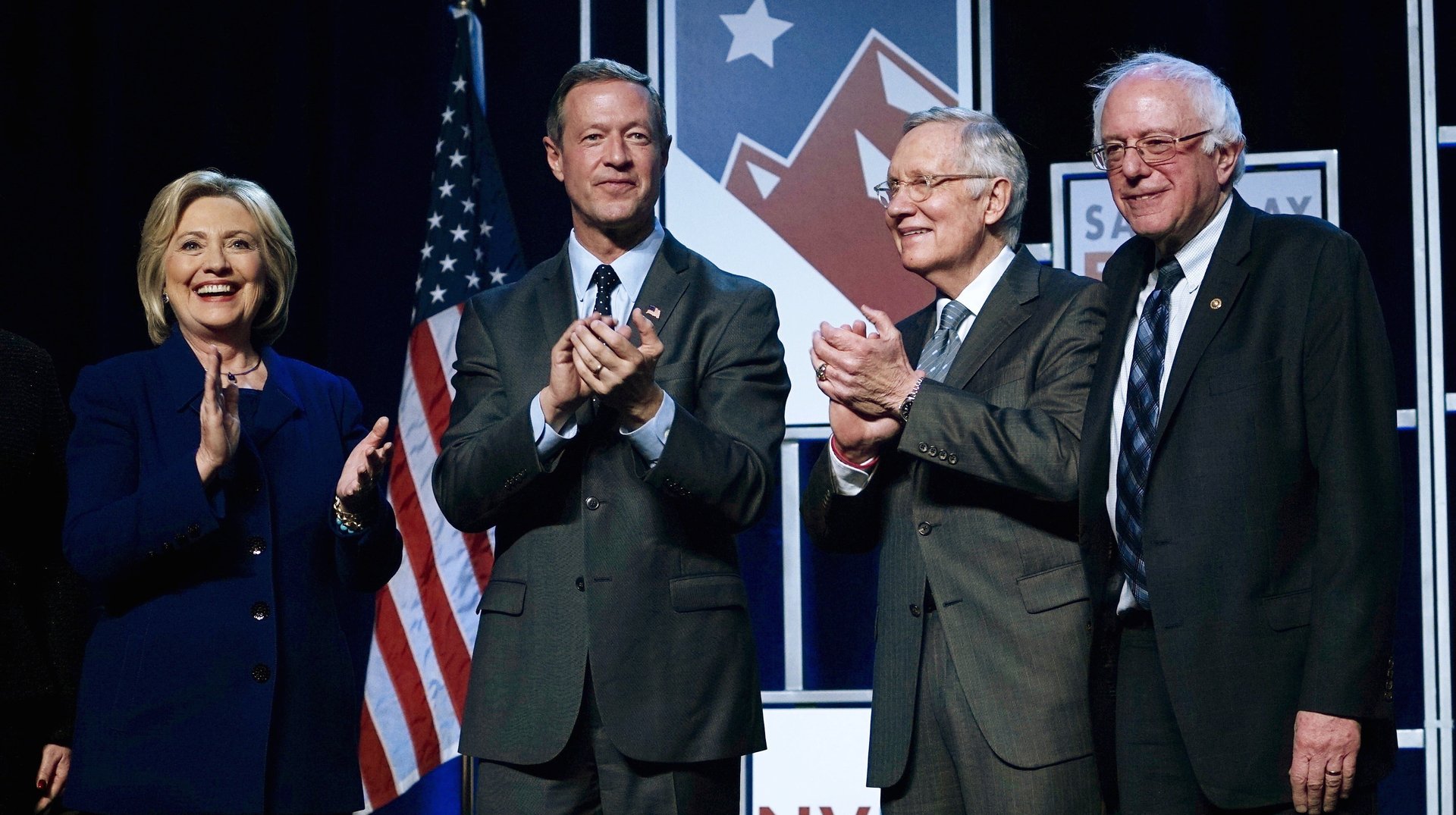The Democratic presidential hopefuls still aren’t working hard enough for black and brown votes
This week, for the first time in American presidential election history, the three Democratic candidates participated in a debate dedicated specifically to addressing minority issues ahead of the Iowa caucus. Iowa’s Black and Brown Presidential Forum was billed as a nonpartisan event and was chaired by former Iowa state representative Wayne Ford.


This week, for the first time in American presidential election history, the three Democratic candidates participated in a debate dedicated specifically to addressing minority issues ahead of the Iowa caucus. Iowa’s Black and Brown Presidential Forum was billed as a nonpartisan event and was chaired by former Iowa state representative Wayne Ford.
Broadcast via a partnership with Fusion, and moderated by Jorge Ramos, Akilah Hughes, Alicia Menendez, and Rembert Browne, the format was unique. Unlike in the official debates, each candidate appeared individually to address questions from the moderators and crowd; candidates did not discuss issues collectively. Bernie Sanders came on first, followed by Martin O’Malley, and Hillary Clinton closed out the discussion.
The event was billed as a rather unprecedented opportunity to engage with all three candidates on issues that impact America’s minority communities. That’s an ambitious mandate—and arguably, it succeeded, at least in terms of centering these types of concerns front and center. Candidates were asked about their positions on everything from policing reform and mass incarceration, to comprehensive immigration policy, to segregation in public schools.
Black and brown voters are experiencing a sort of fatigue when it comes to politicians performing concern and engagement on race issues, especially as it gets closer to election time. Remember, politicians are not owed the black and brown vote. Pandering on the election trail is both transparent and, more importantly, unlikely to bring about genuine change.
At the very least, the unusual format used by Fusion afforded an innovative political infrastructure with which to hold politicians to account. It’s critical, for instance, that Hillary Clinton was asked about her white privilege (the most popular audience question of the night). Although her answer was incomplete, it should provide her with an essential learning opportunity—at least, that is the I hope.
Bernie Sanders also stumbled when asked whether the country had made more progress on racism or sexism. His response missed a big opportunity to point out the violence located at the intersection of the two. This was sad to witness, particularly given that the senator was interrupted by the women of Black Lives Matter towards the beginning of his campaign. But as with Clinton, presumably Sanders left the forum more aware of the fact that racism and sexism are not discrete, separate identities; that some of us exist at the margins and intersections.
During commercial breaks, in a welcome change of pace, the network aired direct testimonials from the formerly incarcerated, immigrant and undocumented, and from students. The forum’s commitment to highlighting the concerns of overlooked constituents was heartening, but it was a little disappointing to see the lack of representation across gender lines, particularly when it came to the testimonials involving police violence.
Ultimately, the candidates didn’t really have much new to add in the moment, but the centering of racialized voices as part of the mainstream political discourse should not be underestimated. That in and of itself made the event worthwhile. (Notably, the stage was reserved for black and brown journalists, students and voters—a welcome change from the backdrop of your typical town hall.)
It’s been said before, but we should say it again: minority and marginalized Americans are closely watching the election and will have a determining impact on its outcome. In the weeks and months ahead, the candidates will need to talk with more specificity and inclusiveness when it comes to their policies—that is, if they want black and brown votes.